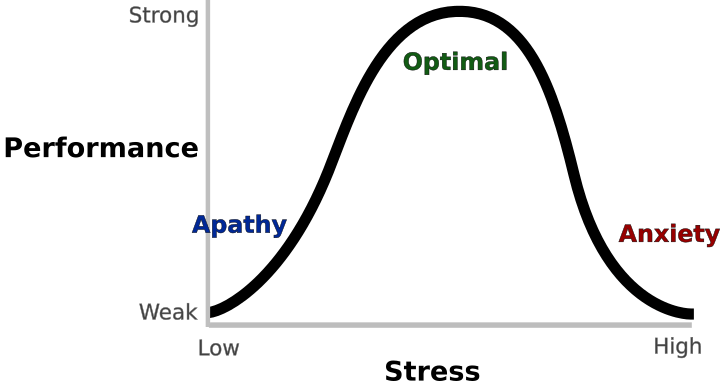Your cart is currently empty!
Most of us start to feel anxious, nervous, before a chance to speak in public. It is the stress kicking in, and you want to get rid of it. Yet, should you?
Stress is a normal human reaction. Our body is designed to experience it and produce physical and psychological responses to its symptoms. It actually has a protective role. It triggers our “fight or flight” response before a dangerous situation. Yet, it is not always that beneficial.
Before you decide you can’t be a good speaker because you get anxious and stressed, keep reading. Let’s understand what happens to our body during a stressful situation.
When stress is blocking you
When your brain activates the stress hormones, they start to act immediately, producing physical symptoms – headaches, rapid breathing, pounding heart, stomachache and nausea, and muscle tension.
The goal is to make you ready for the challenge or danger ahead. Yet, when you look at these symptoms, it is not hard to understand that, in excess, they can have the opposite effect. Can you perform and give a good presentation if you’re about to throw up your last meal? I certainly doubt it.
Now, imagine this scenario: you have a crucial presentation tomorrow. You are so worried that you can’t fall asleep. On the presentation day, your amygdala will be on high alert – there is a threat! That is all your brain can focus on right now. You don’t remember your slides anymore or that marvelous opening you’ve prepared. Your body doesn’t feel that’s a priority right now. Your heart rate increases dramatically, but less blood is coming to your brain. You feel exhausted and can barely think. Your mouth is dry; your hands are cold… Do you recognize this? Then you know what comes next – your presentation is ruined!
So now, let’s go back in time a little. Why were you so nervous the night before? The most probable reason is that you didn’t practice enough. Training, practicing, rehearsing exhaustively is the only way to avoid the bad stress that blocks you.
How can it be good?
After this description, which most of us can relate to, it may come as a surprise that a little bit of stress could be good for you. How? Well, the right amount of stress can make you way more productive than the total absence of it.
Zero stress, zero commitment
Small doses of stress are, in fact, the stimulation you need to keep you going. It keeps you engaged in your tasks and on the going in your day-to-day life. This also applies to public speaking.
You experience this sort of good stress when you feel in control of the situation. If you practice enough, if you rehearse over and over and try all the approaches to find the best way to do it, then you’re in control.
The stress will be there, the butterflies in your stomach, the pounding heart, but not in a way that blocks you. On the contrary, it will stimulate you to give your best. This stimulation is vital to your presentation.

How to keep good stress from escalating into a terrible experience?
According to Francesca Gino, behavioral scientist, there are three main ways to help you keep your stress levels under control. They are to increase your sense of control, find more opportunities to be authentic, and use rituals (read the full article here).
The only way to feel in control of your presentation is to practice! There is no other way, and still, this is somehow underestimated for many presenters. You need to rehearse to find out how you feel talking about your topic. Perhaps, you can change that sentence that seems so difficult to come out. Record your training and watch yourself. If you were the audience, what would you like to know more? Anticipate questions that may appear. Find alternatives if the technology fails. If you’re ready for different situations, you are in control!
It may feel slightly counter-intuitive, but intense rehearsing helps you to be authentic. Isn’t what your audience is expecting the most? If you are not too worried about every detail that can go wrong, you’ll be more yourself. You’ll feel good and confident. That will show up. Do not forget that a good experience will make you feel more confident about the next one.
Concerning rituals, the most common is to do some breathing exercises, but you can find your own rituals. For example, I like to listen to my favorite band and sing out loud while driving my car to the venue. This makes me feel better, calms me down. You need to find out what works for you.
The bogeyman of the century
Stress is often seen as your worst enemy. Changing this mindset can help you deal with it more positively. This is based on scientific research that proves that some amount of stress can benefit your performance.
As a speaker, your goal isn’t a presentation without stress. Your goal is a presentation where the stress helps you to improve instead of knocking you down.
Cátia is a psychologist who is passionate about helping children develop and train social skills.



Leave a Reply